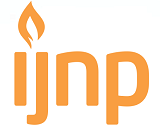A Descriptive Qualitative Study of Nurses’ Experience in Providing Anxiety First Aid to Patients with Cancer
DOI:
https://doi.org/10.18196/ijnp.v9i1.23802Keywords:
anxiety, anxiety first aid, nurses’ experience, cancer patientAbstract
Background: Anxiety is a crucial issue in patients with cancer. Excessive and undetectable anxiety in cancer patients will contribute to the worsening of cancer patients' conditions. Therefore, nurses play a crucial role in providing anxiety first aid for cancer patients.
Objective: The purpose of the study is to explore nurses’ experience in delivering anxiety first aid to patients with cancer.
Method: This study utilized a descriptive qualitative design and reported following COREQ. The study was conducted in a public hospital in Surakarta, Indonesia. It included sixteen oncology nurses selected using a purposive sampling technique. Five head nurses participated in the focus group discussion, while the other eleven primary nurses conducted in-depth interviews. The focus group discussion lasted approximately 90 minutes, while each nurse's in-depth interview lasted approximately 60 minutes. The data analysis used the Colaizzi method.
Results: The study indicated five themes, including 1) factors that cause anxiety, 2) psychosocial interventions for anxiety first aid, 3) peer support, 4) healthcare constraints, and 5) expectations for improving healthcare quality.
Conclusion: The study highlighted factors that cause anxiety, psychosocial interventions for anxiety, first aid, peer support, treatment constraints, and expectations for improvement of health care services. To improve healthcare services for patients with cancer, it is important to establish a digital-based mental health support system, such as a friendly digital platform that serves as an instrument for healthcare providers to conduct timely and precise screenings and manage anxiety, thereby alleviating the burden of nurses' already considerable workloads.
References
Dawdy, K., Bonin, K., Russell, S., Ryzynski, A., Harth, T., Townsend, C., Liu, S., Chu, W., Cheung, P., Chung, H., Morton, G., Vesprini, D., Loblaw, A., Cao, X., & Szumacher, E. (2018). Developing and Evaluating Multimedia Patient Education Tools for Better Prepare Prostate-Cancer Patients for Radiotherapy Treatment (Randomized Study). Journal of Cancer Education : The Official Journal of the American Association for Cancer Education, 33(3), 551–556. https://doi.org/10.1007/s13187-016-1091-5
Doust, M., Hojjati, H., & Farhangi, H. (2020). Effect of Spiritual Care Based on Ghalbe Salim on Anxiety in Adolescent with Cancer. Journal of Religion and Health, 59(6), 2857–2865. https://doi.org/10.1007/s10943-019-00869-9
Gimson, E., Greca Dottori, M., Clunie, G., Yan Zheng, C., Wiseman, T., Joyce, E., McGregor, A., & McNair, H. (2022). Not as simple as ‘fear of the unknown’: A qualitative study exploring anxiety in the radiGimson, Eliza, Maria Greca Dottori, Gemma Clunie, Caroline Yan Zheng, Theresa Wiseman, Elizabeth Joyce, Alison McGregor, and Helen McNair. 2022. “Not as Simple as ‘Fe. European Journal of Cancer Care, 31(2), 1–8. https://doi.org/10.1111/ecc.13564
Goerling, U., Hinz, A., Koch-Gromus, U., Hufeld, J. M., Esser, P., & Mehnert-Theuerkauf, A. (2023). Prevalence and severity of anxiety in cancer patients: results from a multi-center cohort study in Germany. Journal of Cancer Research and Clinical Oncology, 149(9), 6371–6379. https://doi.org/10.1007/s00432-023-04600-w
Hapter, C., Rch, J. O. A., & Raske, M. I. G. C. (2008). Arch J, Craske, MJ. Panic disorder: In W.E. Craighead, D.J. Miklowitz, & L.W. Craighead (Eds.),Chapter 4, Psychopathology: history, diagnosis, and empirical foundations. New York: Wiley. 1–64.
Iacorossi, L., Gambalunga, F., Di Muzio, M., Terrenato, I., El Sayed, S., Ricci, F., Pulimeno, L. A., & Notarnicola, I. (2020). Role and skills of the oncology nurse: an observational study. Annali Di Igiene : Medicina Preventiva e Di Comunita, 32(1), 27–37.
Jarden, M., Møller, T., Kjeldsen, L., Birgens, H., Christensen, J. F., Bang Christensen, K., Diderichsen, F., Hendriksen, C., & Adamsen, L. (2013). Patient Activation through Counseling and Exercise--Acute Leukemia (PACE-AL)--a randomised controlled trial. BMC Cancer, 13, 446. https://doi.org/10.1186/1471-2407-13-446
Keliat, B. A., & Pasaribu, J. (2016). Prinsip dan Praktik Keperawatan Jiwa Stuart (Elsevier (ed.); Edisi Indo). Elsevier Ltd.
Larira, D., Nurmansyah, M., & Buanasari, A. (2023). Komunikasi Terapeutik dan Tingkat Kecemasan Pasien Kanker di RSUP Prof. DR. R. D. Kandou Manado. Jurnal Penelitian Kesehatan Suara Forikes, 14(1), 129–132.
Li, S., Li, L., Shi, X., Wang, M., Song, X., & Cui, F. (2021). Personalized Prechemotherapy Education Reduces Peri-Chemotherapy Anxiety in Colorectal Cancer Patients. Disease Markers, 2021. https://doi.org/10.1155/2021/6662938
Mitani, N. Y., Watanabe, M. N., & Fukahori, H. (2016). Caring for Clients and Families With Anxiety: Home Care Nurses’ Practice Narratives. Global Qualitative Nursing Research, 3, 2333393616665503. https://doi.org/10.1177/2333393616665503
Nguyen, K. T., Hoang, H. T. X., Bui, Q. V, Chan, D. N. S., Choi, K. C., & Chan, C. W. H. (2023). Effects of music intervention combined with progressive muscle relaxation on anxiety, depression, stress and quality of life among women with cancer receiving chemotherapy: A pilot randomized controlled trial. PloS One, 18(11), e0293060. https://doi.org/10.1371/journal.pone.0293060
Nikbakhsh, N., Moudi, S., Abbasian, S., & Khafri, S. (2014). Prevalence of depression and anxiety among cancer patients. Caspian Journal of Internal Medicine, 5(3), 167–170.
Nurgali, K., Jagoe, R. T., & Abalo, R. (2018). Editorial: Adverse effects of cancer chemotherapy: Anything new to improve tolerance and reduce sequelae? Frontiers in Pharmacology, 9(MAR), 1–3. https://doi.org/10.3389/fphar.2018.00245
Ozhanli, Y., & Akyuz, N. (2022). The Effect of Progressive Relaxation Exercise on Physiological Parameters, Pain and Anxiety Levels of Patients Undergoing Colorectal Cancer Surgery: A Randomized Controlled Study. Journal of PeriAnesthesia Nursing, 37(2), 238–246. https://doi.org/10.1016/j.jopan.2021.08.008
Parmar, S., Rani, M., Shah, K., Kaleemullah, Z., Shaikh, A., Bloomfield, D., & Idowu, J. (2022). Evaluation of Depression and Anxiety in Hemodialysis Patients. Ocean Journal of Psychiatry & Mental Health, 1(1), 1–8.
Salisbury, L. (2023). On not being able to read: doomscrolling and anxiety in pandemic times. Textual Practice, 37(6), 887–918. https://doi.org/10.1080/0950236X.2022.2056767
Sanjida, S., McPhail, S. M., Shaw, J., Couper, J., Kissane, D., Price, M. A., & Janda, M. (2018). Are psychological interventions effective on anxiety in cancer patients? A systematic review and meta-analyses. Psycho-Oncology, 27(9), 2063–2076. https://doi.org/10.1002/pon.4794
Sari, D. K., Dewi, R., & Daulay, W. (2019). Association between family support, coping strategies and anxiety in cancer patients undergoing chemotherapy at General Hospital in Medan, North Sumatera, Indonesia. Asian Pacific Journal of Cancer Prevention, 20(10), 3015–3019. https://doi.org/10.31557/APJCP.2019.20.10.3015
Sari, F. S., Kartina, I. S., & Intan, M. B. (2020). Anxiety First Aid Effective to Reduce Adolescent’ Anxiety. Indonesian Journal of Global Health Research, 2(4), 327–334. https://doi.org/10.37287/ijghr.v2i4.237
Singh, B. C., & Arulappan, J. (2023). Operating Room Nurses’ Understanding of Their Roles and Responsibilities for Patient Care and Safety Measures in Intraoperative Practice. SAGE Open Nursing, 9, 23779608231186250. https://doi.org/10.1177/23779608231186247
Singh, B., Singh, H., Singh, C. J., & Kaur, K. T. (2015). Screening of Psychological Distress in Cancer Patients During Chemotherapy: A Cross-sectional Study. Indian Journal of Palliative Care, 21(3), 305–310. https://doi.org/10.4103/0973-1075.164887
Videbeck, S. L. (2020). Psychiatric/mental health nursing. In Nursing Clinics of North America 21(3). https://doi.org/10.3928/0279-3695-19870801-16
Wang, T., Sun, J., Gu, D., Shen, S., Zhou, Y., & Wang, Z. (2023). Dyadic effects of social support, illness uncertainty on anxiety and depression among lung cancer patients and their caregivers: a cross-sectional study. Supportive Care in Cancer : Official Journal of the Multinational Association of Supportive Care in Cancer, 31(7), 402. https://doi.org/10.1007/s00520-023-07876-3
Zhang, S., Li, J., & Hu, X. (2022). Peer support interventions on quality of life, depression, anxiety, and self-efficacy among patients with cancer: A systematic review and meta-analysis. Patient Education and Counseling, 105(11), 3213–3224. https://doi.org/10.1016/j.pec.2022.07.008
Ziegler, E., Hill, J., Lieske, B., Klein, J., dem, O. von K., & Kofahl, C. (2022). Empowerment in cancer patients: Does peer support make a difference? A systematic review. Psycho-Oncology, 31(5), 683–704. https://doi.org/10.1002/pon.5869
Downloads
Published
Issue
Section
License
Copyright (c) 2025 IJNP (Indonesian Journal of Nursing Practices)

This work is licensed under a Creative Commons Attribution 4.0 International License.
License
Articles published in the IJNP (Indonesian Journal of Nursing Practices) are licensed under a Attribution 4.0 International (CC BY 4.0) license. You are free to:
- Share — copy and redistribute the material in any medium or format.
- Adapt — remix, transform, and build upon the material for any purpose, even commercially.
This license is acceptable for Free Cultural Works. The licensor cannot revoke these freedoms as long as you follow the license terms. Under the following terms:
Attribution — You must give appropriate credit, provide a link to the license, and indicate if changes were made. You may do so in any reasonable manner, but not in any way that suggests the licensor endorses you or your use.
- No additional restrictions — You may not apply legal terms or technological measures that legally restrict others from doing anything the license permits.
Copyright
Authors who publish with IJNP (Indonesian Journal of Nursing Practices) agree to the following terms:
- Authors retain copyright and grant IJNP (Indonesian Journal of Nursing Practices) the right of first publication with the work simultaneously licensed under an Attribution 4.0 International (CC BY 4.0) that allows others to remix, adapt and build upon the work with an acknowledgment of the work's authorship and of the initial publication in IJNP (Indonesian Journal of Nursing Practices).
- Authors are permitted to copy and redistribute the journal's published version of the work (e.g., post it to an institutional repository or publish it in a book), with an acknowledgment of its initial publication in IJNP (Indonesian Journal of Nursing Practices).














